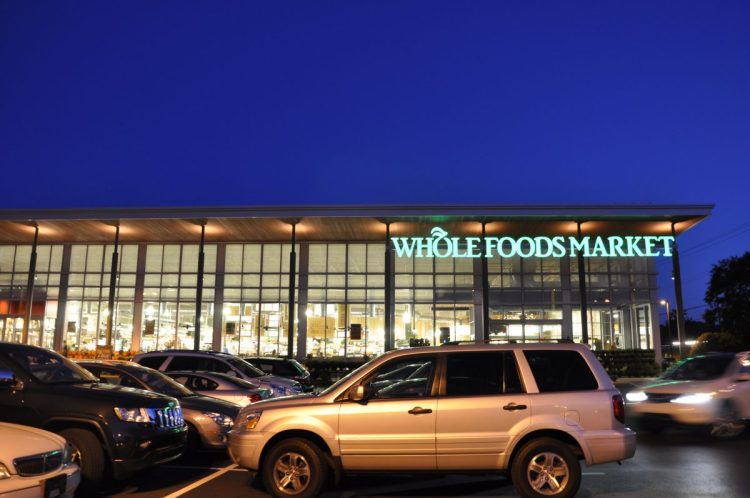Watch all the Transform 2020 sessions on-demand here.
Amazon has big plans for the future of grocery stores. The company’s recent acquisition of Whole Foods serves as proof that the online retailer is preparing to change the way we shop for groceries. We can expect AI and IoT technology — similar to that in the recently launched Amazon Go store — to be integrated into future iterations of Whole Foods and the broader Amazon family of services.
Fully automating supermarkets, which is likely Amazon’s goal, takes advantage of one of the company’s core competencies: digitizing commerce that used to be purely physical. The possibilities for the future of grocery stores are seemingly endless with Amazon driving innovation in the space.
AI meets IoT
Amazon Go stores produce a ton of valuable consumer data from IoT sensors and back-end tech. AI technology will be necessary for processing this data to make it useful. AI algorithms can crawl through data to pull out insights like how long it takes the average consumer to finish a carton of milk. The technology could even gather more obscure insights, like how consumer behavior changes according to weather. Once identified and implemented, these insights can help Amazon use bots and other automated mechanisms to serve customers more effectively.
There will also be a close integration with Amazon’s home IoT products — Alexa, Echo, and Dash. The ecosystem Amazon has already built boasts more and more connected IoT devices that will not be wasted in this acquisition. Asking Alexa for a good pasta recipe will likely become a signal to the device’s AI component to save the information for later. Smart home devices will be a channel for selling Whole Foods products, and the acquisition will likely encourage Amazon to invest even more heavily in other similar high-tech channels that help AI understand individual and group behavior.
June 5th: The AI Audit in NYC
Join us next week in NYC to engage with top executive leaders, delving into strategies for auditing AI models to ensure fairness, optimal performance, and ethical compliance across diverse organizations. Secure your attendance for this exclusive invite-only event.
Product origin insights
AI technology will also open new services and revenue streams in the grocery vertical. One interesting service the technology could provide is more detailed insight into the history of the food we buy. Where did it come from? How long was it in transit? And at what temperature was it kept?
Answering these questions would be beneficial to health-conscious shoppers, but it could be even more valuable to Amazon. Underlying AI could set dynamic expiration dates and price items based on their history. Pricing could even change as the days move closer to the expiration date.
Customer behavior tracking
Another new benefit provided by the integration of AI technology could be individual customer behavior tracking. This is already done with loyalty cards, but the process of collecting data could change dramatically. More accurate tracking could use beacons, geofencing, visual recognition, and other IoT technology to make highly personalized promotion recommendations while a customer is in a store or nearby.
This new reality of a fully connected physical store that leverages a variety of outside data streams will serve as a forcing function for competitors who will need to innovate or die. Consumers should expect more IoT devices, more data, more bots, and much more analysis at grocery stores in the next couple years.
The future of grocery shopping
Amazon has disrupted multiple industries. It started with books, moved to cloud hosting, and is now going on to change the future of buying groceries. Most areas the company has changed began as purely physical industries, but we will see more merging of this traditionally physical world with the digital world across industries.
This is just the beginning, and AI will drive this evolution using data from IoT devices to change how we do business, work, and live. An industry can be disrupted in the blink of an eye, and Amazon’s acquisition of Whole Foods is just the latest example.
Phil Dawsey is the marketing director at Infiswift, an enterprise-grade IoT platform.


